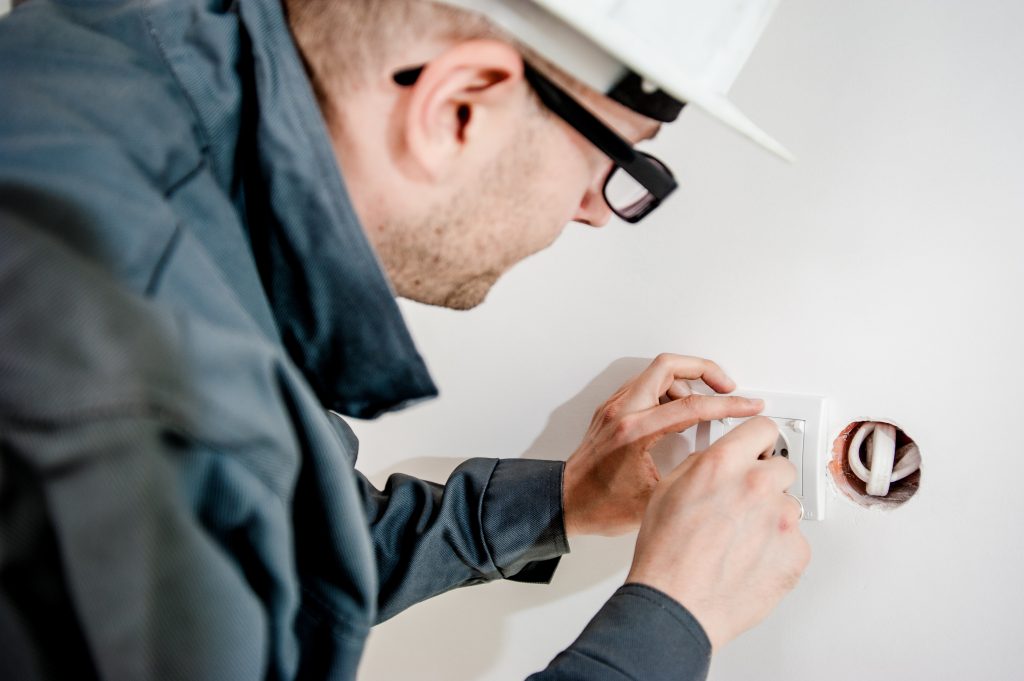Home Inspection vs. Home Appraisal: What Homeowners Need to Know
Published on Thursday September 21, 2017
A lot of work goes into getting a home ready to put on the market. If you’ve been through this process before, you know how time-consuming and expensive this can be.
Like a job interview or first date, you want to make a great impression. You want potential buyers to fall in love with your home and feel confident that they’re making the right decision. You may spruce up the paint, buy new carpeting or fix appliances.
Sellers rely on advice from realtors and tend to focus their energies on pleasing the buyer. But there are two individuals who are just as important — the home inspector and the home appraiser.
The results of the home inspection and home appraisal are extremely important when it comes to the final sale. Yet, many homeowners are confused between the two.
While a home inspection and home appraisal are similar in process and purpose, there are subtle differences.
The Basics
Home inspections and home appraisals both involve the evaluation of the inside and outside of the home. Professional, certified inspectors and appraisers determine the present condition of the home. The fundamental difference between the two is that an inspector is looking for function while an appraiser is looking for value.
While the processes are similar, it is necessary to perform both before the sale of a home. Realtor.com advises that an appraisal is not a substitute for a home inspection. “The appraiser formulates an opinion of the property’s value for the lender…whereas the inspector keys in on the home’s condition with an eye toward both existing and potential future problems.”
While there are endless minor details in a home, the inspectors and appraisers are focused on major features including:
- Foundation, walls, exterior structures
- Roof, windows
- Heating and air conditioning
- Plumbing
- Electrical
- Kitchen and baths
- Major appliances
Inspection Details

The International Association of Home Inspectors defines a home inspection as a “non-invasive, visual examination of the accessible areas of a residential property, performed for a fee, which is designed to identify defects within specific systems and components.” The defects are not only detected for repair costs, but also for health and safety reasons such as a faulty electrical system or collapsing foundation or roof.
“The inspection is the first step to make sure the home is sound,” says Susan Borelli, a D.C. Metro area realtor for RE/MAX Gateway. “Part of the home inspection is educating the purchasers on what things they will need to budget for. It gives them the opportunity to ask for repairs or to void the contract if the home inspector finds things that were unexpected or high cost repairs.”
For the seller, the home inspection reveals which repairs are necessary to ensure the sale goes through. Larger repairs may be mandatory, while smaller repairs may be negotiable.
“In terms of a home inspection, we are always looking to the future,” says Borelli. “You are paying a certain price for the home now, but you have to be able to anticipate what expenses you are going to incur in the near future.”
It’s important to note that the inspector is a nonbiased party and does not represent the buying or selling agent. “An inspector has an expertise and training to look at things from a different perspective, a more thorough perspective,” says Borelli. “The purchasers don’t always know what to look for, especially first-time home buyers,” Borelli adds.
Appraisal Details

According to Redfin, “an appraisal is the estimation of a home’s market value by a licensed appraiser based on comparable recent sales of homes in the neighborhood. The lender’s underwriter will compare the appraisal price to the final sale price of the home to ensure the value of the home is equal to or greater than the loan amount.”
In addition to the home features, external features such as the lot size and distance to desirable schools and other public facilities are considered.
Just as home inspections give the buyer and seller an opportunity to negotiate repairs, home appraisals give the buyer and seller the opportunity to negotiate the details of the sale.
If the final sale price is higher that the appraised value, the sale price can be renegotiated or the buyer may put more money toward their down payment to make up the difference.
Realtor.com explains that an appraisal “provides valuable information for the buyer and the seller, but the appraiser’s primary mission is to protect the lender. Lenders don’t want to own overpriced property and that’s why the appraisal takes place before the lender grants final approval of the buyer’s loan.”
Why You Need a Professional

Some of the items on an inspection or appraisal checklist are obvious. If an appliance doesn’t work or is very old, it needs to be repaired or replaced. If the kitchen countertops have been updated and new hardwood floors have been installed, the home will assess for more money.
But some replacement and upgrades may not be so obvious for buyers and sellers – and that’s why home inspections and appraisals are necessary safeguards.
Windows
Most buyers and sellers think of new windows as adding value to the home, but not as a safety concern. “You may not think of it that way, but windows are a health and safety issue,” says Borelli. “If they don’t open and close properly, it can put someone in jeopardy. Think of children. If they can’t open the window, that’s a fire hazard. And if a window comes slamming down, that’s an issue where someone could get hurt.”
Electrical
What may appear to be a simple need for a light bulb replacement may be a sign of a faulty electrical system. This may not only be a big repair item for a buyer, but also a safety hazard. Inspectors and appraisers are trained to spot the difference and alert both the buyer and seller.
Heating and Cooling
An inspector can detect defects in your HVAC system that you may not notice. “The inspector is going let the buyer know what repairs they can expect to pay for down the road,” Borelli says. Also, a homeowner may not be aware of the age of specific components. An appraiser can point that out.
Plumbing
Plumbing related issues in the home are not always visible. An inspector will know what to look for, such as signs of a failing hot water tank or sump pump. An appraiser will know to look for things such as higher-cost copper plumbing.
Roofs
Just like plumbing, problems with the roofing system are not always visible to the buyer or seller. “Most people see the windows and know that they are old. But they can’t see the roof from the street,” Borelli notes. An inspector can assess the approximate life expectancy of the roof and related ventilation and insulation systems.
“When I meet an appraiser I always let them know what major upgrades, such as a new roof, have been done. It is a big expense that absolutely adds value to the house. An appraiser will definitely take that into account.”
Thinking of Selling Your Home? Replacing your old roof can make a big difference.
If you are in the market for a new roof, contact Long Roofing online. Set up a free assessment to learn how a new roof can not only boost your curb appeal, but your selling price, too. Long Home Products also offers windows, siding, and doors in select regions.
Interested in Long Home Products?
See our special offers now.
*Excludes labor. Subject to credit approval.
**Excludes labor. Subject to credit approval.
One-day installs contingent upon municipal rules and regulations.
By submitting a form, I authorize Long Home to contact me with information about its products and services via mail, email, phone and/or text at the contact information provided, even if I am on the national do not call list. Long Home may use automated telephone technology to initiate calls to its customers. Calls and in person estimates may be recorded for quality and training purposes.







